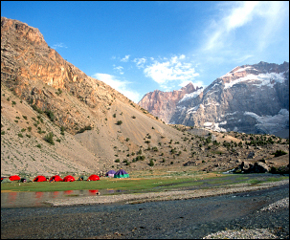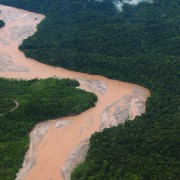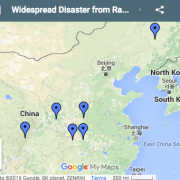The Stream, August 3: Of Food and Conflict
The Shabab Islamist insurgent group in Somalia is blocking starving people from fleeing the country and forcing out many Western aid organizations amid a famine that has already killed thousands of Somalis and left more than 500,000 children on the brink of starvation, The New York Times reported.
The world’s food assistance pact is desperately out of date, Foreign Policy says, and a new treaty should “orient food assistance away from bulk contributions of aid and toward programs that allow local communities to help themselves and address the worst effects of famine.”
There are more than 90 uranium-tailing storage sites that could threaten Central Asia’s water resources, Central Asia Online reported, citing warnings by Kyrgyzstan’s deputy ambassador to the United Nations.
Despite increased spending on sanitation works, the water quality in rivers near large urban centers in Brazil is still very bad, IPS News reported.
Can water shortages threaten a renewed conflict between India and Pakistan? According to AlterNet, population growth and climate change could increase the competition for water in the region.
NPR adds to the “fracking” debate with a report from northern Pennsylvania, where the shale gas boom is creating jobs and wealth but is also splitting neighbor from neighbor, and bringing increased anxiety over local water resources.
The Stream is a daily digest spotting global water trends. To get more water news, follow Circle of Blue on Twitter and sign up for our newsletter.
, a Bulgaria native, is a Chicago-based reporter for Circle of Blue. She co-writes The Stream, a daily digest of international water news trends.
Interests: Europe, China, Environmental Policy, International Security.








Leave a Reply
Want to join the discussion?Feel free to contribute!